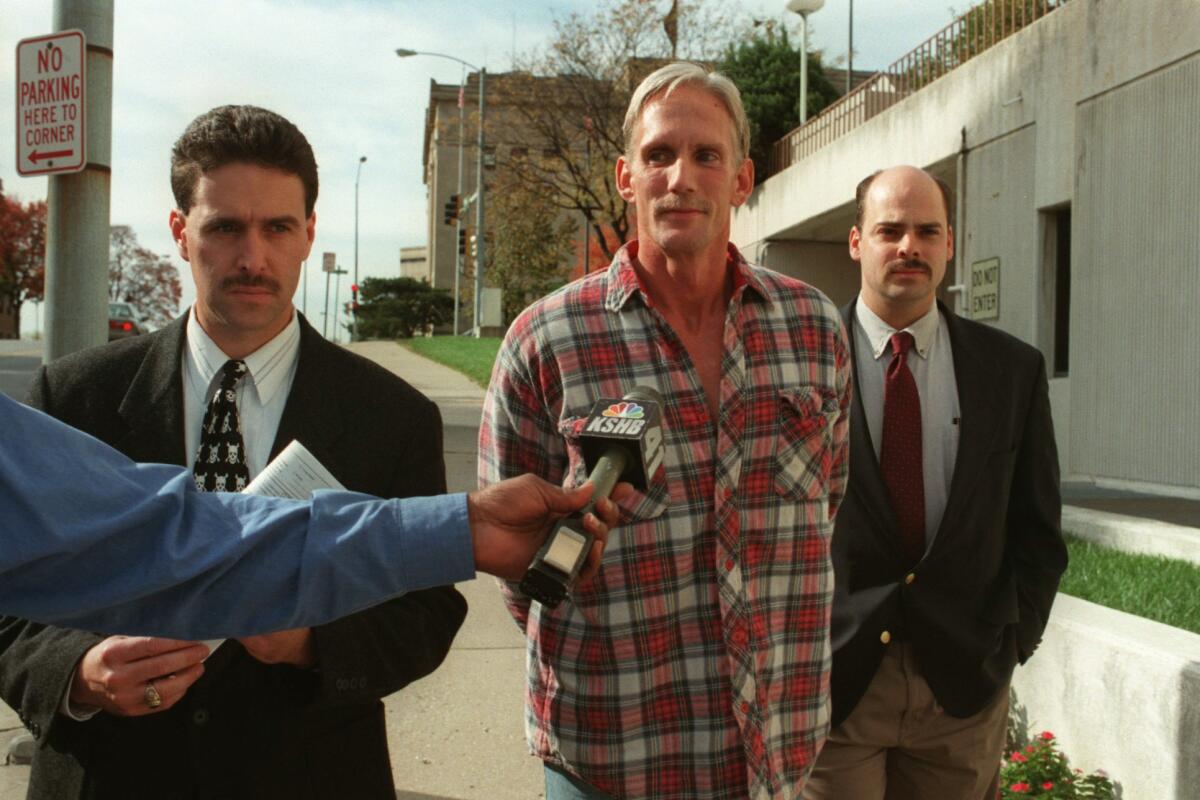Second federal execution this week is carried out after last-minute Supreme Court ruling

TERRE HAUTE, Ind. — The U.S. on Thursday carried out its second federal execution this week, killing by lethal injection a Kansas man whose lawyers contended he had dementia and was unfit to be executed.
Wesley Ira Purkey was put to death at the Federal Correctional Complex in Terre Haute, Ind. Purkey was convicted of kidnapping and killing a 16-year-old girl before dismembering and burning her body and dumping the remains in a septic pond. He also was convicted in a state court in Kansas after using a claw hammer to kill an 80-year-old woman who had polio.
Purkey was strapped to a gurney inside the execution chamber. A prison official removed a mask from Purkey’s face and asked him if he wanted to make a final statement.
He tilted his head up slightly from the gurney and said: “I deeply regret the pain and suffering I caused to Jennifer’s family. I am deeply sorry.”
He also expressed remorse for his own adult daughter’s suffering. “I deeply regret the pain I caused to my daughter, who I love so very much,” he said.
His last words were: “This sanitized murder really does not serve no purpose whatsoever. Thank you.”
As the lethal chemical was injected, Purkey took several deep breaths and blinked repeatedly, laying his head back down on the gurney. His time of death was 8:19 a.m. EDT.
His spiritual advisor was in the room, wearing a face mask and a surgical mask and appeared to be praying, his gloved hands held together at the palms.
The Supreme Court cleared the way just hours before for the execution to take place, ruling in a 5-4 decision. The four liberal justices dissented, as they did in the first case earlier this week.
Justice Sonia Sotomayor wrote that “proceeding with Purkey’s execution now, despite the grave questions and factual findings regarding his mental competency, casts a shroud of constitutional doubt over the most irrevocable of injuries.” She was joined by Justices Ruth Bader Ginsburg, Stephen Breyer and Elena Kagan.
Purkey’s execution had been scheduled for Wednesday at the Federal Correctional Complex in Terre Haute, Ind. On Tuesday, Daniel Lewis Lee was put to death at the facility after his eleventh-hour legal bids failed. It was the first federal execution after a 17-year hiatus.
Lawyers for the 68-year-old Purkey argued that he has dementia and is unfit to be executed. They said his condition has deteriorated so severely that he didn’t understand why he was being executed. They also said that if Purkey’s execution did not take place Wednesday, the government would need to set a new date. But government lawyers said there was no obstacle to going through with the execution Thursday if the Supreme Court lifted the injunctions.
The issue of Purkey’s mental health arose in the run-up to his 2003 trial and when, after the verdict, jurors had to decide whether he should be put to death. Prosecutors said he raped and stabbed 16-year-old Jennifer Long in Kansas City, Mo., then dismembered her body with a chainsaw, burned the remains and dumped the ashes 200 miles away in a septic pond in Kansas. Purkey was separately convicted and sentenced to life in the beating death of 80-year-old Mary Ruth Bales of Kansas City, Kan., who suffered from polio.
More to Read
Sign up for Essential California
The most important California stories and recommendations in your inbox every morning.
You may occasionally receive promotional content from the Los Angeles Times.










